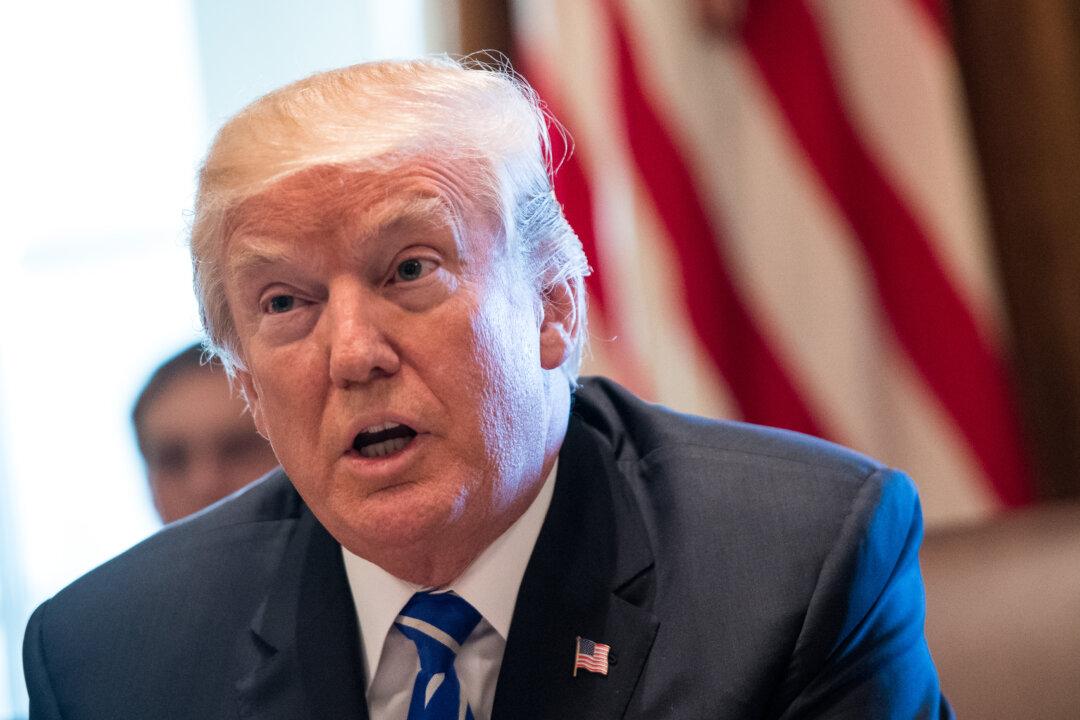President Donald Trump designated North Korea a state sponsor of terrorism on Monday, opening the door to additional sanctions against Pyongyang as it continues to pursue nuclear weapons programs.
“Today, the United States is designating North Korea as a state sponsor of terrorism,” Trump told reporters at the White House. “Should have happened a long time ago, should have happened years ago.”





